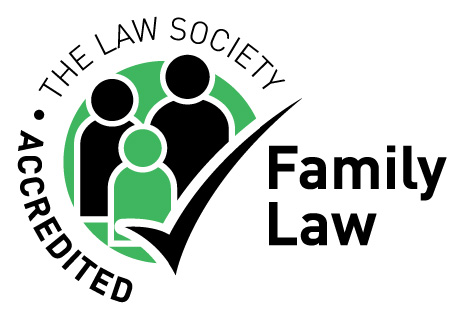COHABITATION SOLICITORS Enfield, Finchley, North London and Hertfordshire
If you are living together with your partner you may think that you have some sort of “common law marriage” and enjoy similar protection as married couples.
Unfortunately, this is a myth and even if you have cohabited for many years and/or have children together, you DO NOT have the same rights afforded to couples on the breakdown of their marriage or civil partnership. The court process can certainly settle any disputes, but it is usually dealt with under Trusts Law, rather than Family Law so a judge may have little discretion as to what outcome they can order, however sympathetic they may feel to your situation.
BEFORE things start to unravel it is important that you take specialist legal advice to protect your position – whether that is in relation to any PROPERTY you might share with your partner and/or to regulate arrangements for the care of your CHILDREN.
In an ideal world you would have entered into a COHABITATION AGREEMENT when you first moved in together, or would at least have a formal Deed of Trust document drawn up if you purchased a property in joint names. Such documents should then clarify what happens to any property on the relationship ending and you separating.
In the absence of a clear document showing the agreement between co-habitees, the Court can be asked to decide how a property they shared should be divided between them. This is an increasingly complex area of law, but the main points the court will consider are as follows:-
- Is the property registered at the Land Registry in joint names?
- If they are registered as JOINT TENANTS there is usually a presumption that you own the property in equal shares, unless there is clear evidence to the contrary
- If they are registered as TENANTS IN COMMON is there any evidence on what they intended their respective shares in the property to be, or can this be inferred by financial contributions to the property – for example the purchase monies, any renovations and or the mortgage repayments
- Have the intentions of the parties changed during the relationship?
It can also take into account all other relevant circumstances in deciding what is a fair division – for example where will any dependant children live?
On any relationship breakdown, there are a number of potential concerns to get advice on:-
- Not getting to see your children (or at least regularly enough)
- Not knowing what you are entitled to from the former family home – both in terms of the equity in that property and the contents
- Knowing how much maintenance you should be paying to/receiving from an ex-partner – usually only Child Maintenance through the CHILD MAINTENANCE SERVICE if you are not married
- Other potential financial claims on behalf of a child (through Schedule 1 of the Children Act)
- Dealing with threats of verbal or physical violence and/or controlling behaviour
How we can help you
It is possible to protect you, your children and your property by entering into a written agreement with your partner BEFORE anything goes wrong and even if you have already split up. The sooner you take action the better and a short phone call to one of our team can get you started.
Please note that Curwens is unable to offer advice under Legal Aid.
Contact our Family Lawyers in Enfield, Finchley, North London and Hertfordshire today
Call us today or complete our online contact form and one of our family lawyers will be in touch to discuss your matter further.
FAQs
This is not a clear, legal definition, but if you live with someone and are not legally married to them or in a civil partnership with them, you are cohabiting.
No. Common law marriage does not exist. If you are living together but are not married then you are Cohabiting, as described above.
It is advisable to have a written agreement with your partner as to how things will be divided between you if you separate. If you own a property together, you may be advised to draw up a Deed of Trust which sets out your interests in that property and what you will do in the event that you separate. However, a Cohabitation Agreement can go further and deal with other assets and issues.
A natural mother will immediately have Parental Responsibility for any child from birth. If the natural father is married to the mother at the time of the birth, he also has Parental Responsibility automatically. However, if the natural father is not married to the mother, they will only have Parental Responsibility if they are named on the birth certificate after 1st December 2003. In other circumstances, or if you are another party you may be able to obtain Parental Responsibility through an Agreement, or by an order of the court. For more information about how to obtain Parental Responsibility please see the relevant FAQ’s on the subject of Children.
Not for yourself – even if you were dependent upon them. If you are the main carer of any children from the relationship, you would normally be entitled to maintenance for the child(ren) whilst the child is aged under 18 and/or in full-time education. If the amount to be paid cannot be agreed, you will need to ask the CMS (Child Maintenance Service) to make an assessment.
Yes. The court has powers to both force, and stop, the sale of a property. The court’s decision will depend on a number of factors such as: - firstly, whether there are any children to be housed, and if so, the needs and any disability of those children; - what interest you and your each partner have in the home; - the financial position of you and your partner (for example could one of you afford to take over any existing mortgage and buy out the other’s interest in the property); and - whether there is a mortgage on the property
No. The court would have to take into account a number of factors to decide what interest you have in the property such as: • whether there are children to be housed, and if so, the financial position of each of you as their parents; • whether you hold the property as Joint Tenants or Tenants in Common; • whether there is any document (or other evidence) showing what interest it was intended you would each have in the property, e.g. a Deed of Trust; and • what financial contribution you each made to the purchase and upkeep of the property (including making mortgage payments)
No. This would only have been possible if you had been married.
Not at all. Court is a last resort for when negotiation has failed or when emergency action is needed. Using litigation often causes delay and can be very costly. Therefore it is important to initially narrow down what is in dispute and then try to negotiate a fair settlement. You will need expert legal advice to do this, but may also benefit from the assistance of mediation or the Collaborative approach. Please see our separate pages on these subjects.
It can be, if you both had independent legal advice when the document was drawn up and none of your circumstances have changed substantially since you signed it. Even if it is no longer absolutely binding on you both, it is still evidence of what your intentions were in respect of any property or assets, and will therefore be taken into consideration by the court.
On their death, you could be forced to move out of your home if it is registered only in their name. Even if it is in joint names, you may end up having to sell your home if their share does not automatically pass to you and they have not given you a life interest in the property. You may have to make a formal claim against your partner’s estate to get financial assistance – such as maintenance and somewhere to live. To avoid these difficulties, it is advisable to discuss the arrangements with your partner and seek the advice of a solicitor.






















